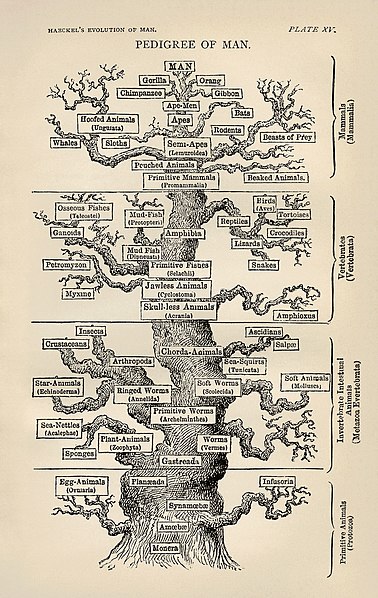
A recent op-ed in The Scientist raised once again the question of when and where the very concept of “species” has validity.

In the previous post about Cretacean extinctions, I referred to extinct bee groups, not “bee species.” Intentionally.
The species concept is central to the checkboxes of orthodox biology, as in Darwin’s Origin of Species, the Holy Book which was written (as all true believers attest) before time began and before all worlds.
But is it nearly so central to the behaviour of the majority of actual life forms on this planet? Ecologist Axel G. Rossberg wonders:
The biological intuition about species formation is mostly based on observation of birds, mammals, and other larger creatures. However, it is the meiofauna (of body size around 0.05–1 mm) and smaller microorganisms that dominate biodiversity and ecosystem functioning on Earth. It is therefore important to ask if our current understanding of species formation is applicable to these organisms.
One way to approach this problem is through the study of simplified evolutionary models. Analysis of these models can give insights into real-world processes happening over many millions of years that cannot be directly observed. In this context, species formation can be interpreted as a particular instance of the general phenomenon of self-organized pattern formation. Just as a jet of water can break up into little drops, but will do so only under certain conditions, the ancestral tree of life on Earth may, near the tips of its branches, become structured into distinct species when the conditions are right. [Colour emphasis added.]
…
We predict that at around the millimeter scale of body size and smaller, populations become large enough to prohibit species formation. This is consistent with results of recent work in the field of environmental genomics, in which organisms are collected from environmental samples and parts of their genomes are read using high-throughput sequencing.
This op-ed may be a way of opening a sustained, long-overdue discussion of just what relevance “species” has in many situations. But this effort, like so many others, will probably just fall down the memory hole. Too many legacies and careers at stake now.